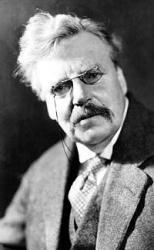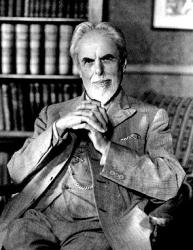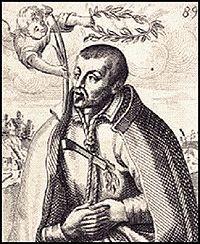Planning worship?
Check out our sister site, ZeteoSearch.org,
for 20+ additional resources related to your search.
- |
User Links
Person Results
William Walsham How

1823 - 1897 Person Name: Bishop W. W. Howe, 1823-97 Author of "O Jesus, thou art standing" in The English Hymnal William W. How (b. Shrewsbury, Shropshire, England, 1823; d. Leenane, County Mayo, Ireland, 1897) studied at Wadham College, Oxford, and Durham University and was ordained in the Church of England in 1847. He served various congregations and became Suffragan Bishop in east London in 1879 and Bishop of Wakefield in 1888. Called both the "poor man's bishop" and "the children's bishop," How was known for his work among the destitute in the London slums and among the factory workers in west Yorkshire. He wrote a number of theological works about controversies surrounding the Oxford Movement and attempted to reconcile biblical creation with the theory of evolution. He was joint editor of Psalms and Hymns (1854) and Church Hymns (1871). While rector in Whittington, How wrote some sixty hymns, including many for children. His collected Poems and Hymns were published in 1886.
Bert Polman
===============
How, William Walsham, D.D., son of William Wybergh How, Solicitor, Shrewsbury, was born Dec. 13, 1823, at Shrewsbury, and educated at Shrewsbury School and Wadham College, Oxford (B.A. 1845). Taking Holy Orders in 1846, he became successively Curate of St. George's, Kidderminster, 1846; and of Holy Cross, Shrewsbury, 1848. In 1851 he was preferred to the Rectory of Whittington, Diocese of St. Asaph, becoming Rural Dean in 1853, and Hon. Canon of the Cathedral in 1860. In 1879 he was appointed Rector of St. Andrew's Undershaft, London, and was consecrated Suffragan Bishop for East London, under the title of the Bishop of Bedford, and in 1888 Bishop of Wakefield. Bishop How is the author of the Society for Promoting Christian Knowledge Commentary on the Four Gospels; Plain Words , Four Series; Plain Words for Children; Pastor in Parochia; Lectures on Pastoral Work; Three All Saints Summers, and Other Poems , and numerous Sermons , &c. In 1854 was published Psalms and Hymns, Compiled by the Rev. Thomas Baker Morrell, M.A., . . . and the Rev. William Walsham How, M.A. This was republished in an enlarged form in 1864, and to it was added a Supplement in 1867. To this collection Bishop How contributed several hymns, and also to the S. P. C. K. Church Hymns , of which he was joint editor, in 1871. The Bishop's hymns in common use amount in all to nearly sixty.
Combining pure rhythm with great directness and simplicity, Bishop How's compositions arrest attention more through a comprehensive grasp of the subject and the unexpected light thrown upon and warmth infused into facia and details usually shunned by the poet, than through glowing imagery and impassioned rhetoric. He has painted lovely images woven with tender thoughts, but these are few, and found in his least appreciated work. Those compositions which have laid the firmest hold upon the Church, are simple, unadorned, but enthusiastically practical hymns, the most popular of which, "O Jesu, Thou art standing"; "For all the Saints who from their labours rest," and "We give Thee but Thine own," have attained to a foremost rank. His adaptations from other writers as in the case from Bishop Ken, "Behold, the Master passeth by," are good, and his Children's hymns are useful and popular. Without any claims to rank as a poet, in the sense in which Cowper and Montgomery were poets, he has sung us songs which will probably outlive all his other literary works.
The more important of Bishop How's hymns, including those already named, and "Lord, Thy children guide and keep"; "O Word of God Incarnate"; "This day at Thy creating word"; "Who is this so weak and helpless"; and others which have some special history or feature of interest, are annotated under their respective first lines. The following are also in common use:—
i. From Psalms & Hymns, 1854.
1. Before Thine awful presence, Lord. Confirmation.
2. Jesus, Name of wondrous love [priceless worth]. Circumcision. The Name Jesus .
3. Lord Jesus, when we stand afar. Passiontide.
4. O blessing rich, for sons of men. Members of Christ.
5. 0 Lord of Hosts, the earth is Thine. In time of War.
6. O Lord, Who in Thy wondrous love. Advent.
ii. From Psalms & Hymns, enlarged, 1864.
7. Lord, this day Thy children meet. Sunday School Anniversary.
iii. From Supplement to the Psalms & Hymns, 1867.
8. Hope of hopes and joy of joys. Resurrection.
9. 0 daughters blest of Galilee. For Associations of Women.
10. O happy feet that tread. Public Worship.
11. With trembling awe the chosen three. Transfiguration.
iv. From Parish Magazine, 1871, and Church Hymns, 1871.
12. O Jesu, crucified for man. Friday.
13. Yesterday, with worship blest. Monday.
v. From the S. P. C. K. Church Hymns. 1871.
14. Bowed low in supplication. For the Parish.
15. Great Gabriel sped on wings of light. Annunciation, of the Blessed Virgin Mary.
16. O blest was he, whose earlier skill. St. Luke.
17. O God, enshrined in dazzling light. Omnipresence. Divine Worship .
18. O heavenly Fount of Light and Love. Witsuntide.
19. O Lord, it is a blessed thing. Weekdays.
20. 0 One with God the Father. Epiphany.
21. O Thou through suffering perfect made. Hospitals.
22. Rejoice, ye sons of men. Purification of the B. V. M.
23. Summer suns are glowing. Summer.
24. The year is swiftly waning. Autumn.
25. Thou art the Christ, O Lord. St. Peter.
26. To Thee our God we fly. National Hymn.
27. Upon the holy Mount they stood. Transfiguration and Church Guilds.
28. We praise Thy grace, 0 Saviour. St. Mark.
vi. From the S. P. C. K. Children's Hymns, 1872.
29. Behold a little child. Jesus the Child's Example.
30. Come, praise your Lord and Saviour. Children's Praises.
31. It is a thing most wonderful. Sunday School Anniversary.
32. On wings of living light. Easter.
Bishop How's hymns and sacred and secular pieces were collected and published as Poems and Hymns, 1886. The Hymns, 54 in all, are also published separately. He d. Aug. 10, 1897.
--John Julian, Dictionary of Hymnology (1907)
===================
How, W. W., p. 540, i. He died Aug. 10, 1897. His Memoir, by F. D. How, was published in 1898.
--John Julian, Dictionary of Hymnology, New Supplement (1907)
William Walsham How
Anonymous
Person Name: Anonima Composer of "IN DER WIEGEN" in TTT-Himnaro Cigneta In some hymnals, the editors noted that a hymn's author is unknown to them, and so this artificial "person" entry is used to reflect that fact. Obviously, the hymns attributed to "Author Unknown" "Unknown" or "Anonymous" could have been written by many people over a span of many centuries.
Anonymous
Martin Shaw

1875 - 1958 Person Name: Martin Shaw, 1875-1958 Harmonizer of "IN DER WIEGEN" in The New English Hymnal Martin F. Shaw was educated at the Royal College of Music in London and was organist and choirmaster at St. Mary's, Primrose Hill (1908-1920), St. Martin's in the Fields (1920-1924), and the Eccleston Guild House (1924-1935). From 1935 to 1945 he served as music director for the diocese of Chelmsford. He established the Purcell Operatic Society and was a founder of the Plainsong and Medieval Society and what later became the Royal Society of Church Music.
Author of The Principles of English Church Music Composition (1921), Shaw was a notable reformer of English church music. He worked with Percy Dearmer (his rector at St. Mary's in Primrose Hill); Ralph Vaughan Williams, and his brother Geoffrey Shaw in publishing hymnals such as Songs of Praise (1925, 1931) and the Oxford Book of Carols (1928). A leader in the revival of English opera and folk music scholarship, Shaw composed some one hundred songs as well as anthems and service music; some of his best hymn tunes were published in his Additional Tunes in Use at St. Mary's (1915).
Bert Polman
Martin Shaw
Walford Davies

1869 - 1941 Person Name: H. Walford Davies Arranger of "CAROL" in Christian Science Hymnal (Rev. and enl.)
Walford Davies
G. K. Chesterton

1874 - 1936 Person Name: Gilbert Keith Chesterton Author of "Ĉe-sine kuŝas Krist' la Beb'" in TTT-Himnaro Cigneta Chesterton, Gilbert Keith, son of Edward Chesterton, was b. May 29, 1874, at Campden Hill, Kensington. London; and is a well-known journalist and author, now (1906) residing at Battersea Park, London. He contributed to The English Hymnal, 1906, a vigorous lyric beginning, "O God of earth and altar"(Prayer for the Nation). [Rev. James Mearns, M.A.]
--John Julian, Dictionary of Hymnology, New Supplement (1907)
=================
Gilbert Keith Chesterton was born in London, England on the 29th of May, 1874. Though he considered himself a mere "rollicking journalist," he was actually a prolific and gifted writer in virtually every area of literature. A man of strong opinions and enormously talented at defending them, his exuberant personality nevertheless allowed him to maintain warm friendships with people--such as George Bernard Shaw and H. G. Wells--with whom he vehemently disagreed.
Chesterton had no difficulty standing up for what he believed. He was one of the few journalists to oppose the Boer War. His 1922 Eugenics and Other Evils attacked what was at that time the most progressive of all ideas, the idea that the human race could and should breed a superior version of itself. In the Nazi experience, history demonstrated the wisdom of his once "reactionary" views. His poetry runs the gamut from the comic "The Logical Vegetarian" to dark and serious ballads.
Though not written for a scholarly audience, his biographies of authors and historical figures like Charles Dickens and St. Francis of Assisi often contain brilliant insights into their subjects. His "Father Brown" mystery stories, written between 1911 and 1936, are still being read and adapted for television.
His politics fitted with his deep distrust of concentrated wealth and power of any sort. Along with his friend Hilaire Belloc and in books like the 1910 What's Wrong with the World he advocated a view called "Distributism" that is best summed up by his expression that every man ought to be allowed to own "three acres and a cow." Though not known as a political thinker, his political influence has circled the world. Some see in him the father of the "small is beautiful" movement and a newspaper article by him is credited with provoking Gandhi to seek a "genuine" nationalism for India. Orthodoxy belongs to yet another area of literature at which Chesterton excelled. A fun-loving and gregarious man, he was nevertheless troubled in his adolescence by thoughts of suicide. In Christianity he found the answers to the dilemmas and paradoxes he saw in life. Other books in that same series include his 1905 Heretics and its sequel Orthodoxy and his 1925 The Everlasting Man.
Chesterton died on the 14th of June, 1936 in Beaconsfield, Buckinghamshire. During his life he published 69 books and at least another ten have been published after his death. Many of those books are still in print.
--www.ccel.org/ccel/
G. K. Chesterton
Laurence Housman

1865 - 1959 Person Name: Laurence Housman, 1865-1959 Author of "The Maker of the sun and moon" in The New English Hymnal Housman, Lawrence, author and artist, was born July 18, 1867, at Bromsgrove, Worcs. His devotional poetry is principally in his Spikenard, 1898, and Bethlehem, 1902. To the English Hymnal, 1906, he contributed eight translations (142, 188, 191, 228, 229, 230, 231, 234); also three original hymns, with a fourth previously published, viz.:—
1. Lord God of Hosts, within Whose hand. St. George.
2. The Maker of the sun and moon. Christmas. From Bethlehem, 1902, p. 75.
3. The Saint who first found grace to pen. St. Mark.
4. When Christ was born in Bethlehem. Holy Innocents. [Rev. James Mearns, M.A.]
--John Julian, Dictionary of Hymnology, New Supplement (1907)
==================
Born: July 18, 1865, Bromsgrove, Hereford, England.
Died: February 20, 1959, Glastonbury, Somerset, England.
Buried: St. Mary’s, Bathwick, Smallcombe, near Bath.
Housman studied art at the Lambeth School of Art and the Royal College of Art. He had great success as an illustrator, but when his eyesight began to fail, he turned to writing books and plays. He wrote 80 books during his lifetime. He often seemed to fall afoul of the censors, though, for religious and political reasons. A committed socialist and pacifist, in 1907, he helped found the Men’s League for Women’s Suffrage. He was also an honorary associate of the Women Writers’ Suffrage League. His works include:
Jump-to-Glory Jane, by Meredith
Goblin Market, by Christiantina Rossetti, 1893
The End of Elfintown, by Jane Barlow, 1894
Spikenard, 1898
The Sensitive Plant, 1898
Bethlehem, 1902
The Blue Moon, 1904
Angels and Ministers, 1921
Little Plays of St. Francis, 1922
Victoria Regina, 1937
The Unexpected Years, 1937 (autobiography)
--www.hymntime.com/tch
Laurence Housman
Violet Spiller Hay
1873 - 1969 Person Name: V. H. Author of "All glory be to God most high" in Christian Science Hymnal (Rev. and enl.) Hay, Violet Spiller. (1873--1969). She married Commander the Hon. Gerald Hay in Cape Town, South Africa. She was a Christian Science practitioner and teacher, 1902-1969. She was chair of the committee for the Christian Science Hymnal, 1928-1932, and a committee member through 1955. She published a book of solos, and a book of poems.
--Joan E. Wilson, DNAH Archives
Violet Spiller Hay
Robert Southwell

1561 - 1595 Person Name: Robert Southwell, c.1561-1595 Author of "Behold a Silly Tender babe" in The Cambridge Hymnal Southwell, Robert, was b. at Horsham St. Faith, Norfolk, about 1561, educated at Paris and at Rome, and entered the Society of Jesus at Rome, Oct. 17, 1578. He spent part of his noviciate at Tournai in Belgium, but returned to Rome and completed his studies there. After being ordained priest in 1584, he returned to England in 1586. He was arrested in 1592 on the charge of high treason, committed to the Tower of London, formally tried at Westminster, Feb. 21, 1594-5, and executed the next day at Tyburn.
His Poetical Works were collected in 1856 by W. B. Turnbull, and re-edited in 1872 more completely and more carefully by Dr. A. B. Grosart, from the Add. manuscript 10422 in the British Museum, from a manuscript, perhaps autograph, at Stonyhurst College, Lanes., and from the printed editions of the individual works. One of his carols is noted at p. 210, ii., one of his translations at p. 663, ii., three additional are in the Arundel Hymns, 1902. They are all in Grosart's edition and are here cited as they are found in the Add. 10422, the spelling being preserved:—
1. As I in hoarie winters nyght. [Christmas]. At f. 10 b. This is the admirable poem entitled "The Burning Babe."
2. Behoulde a seelie tender Babe. [Christmas.] At f. 11. See p. 210, ii.
3. In Paschall fest, ye ende of auntient rite. [Holy Communion.] At f. 17 b.
4. Let folly prayse that phaney loues. [Christmas.] At f. 9. The Arundel reads "what fancy loves."
5. Prayse, 0 Syon, prayse, prayse thy Saviour. At f. 16. From the "Lauda Sion," p. 663, ii.
See also notices in the Month for Oct. 1894, and Feb. and March 1895, and in the Dublin Review, Oct. 1903. [Rev. James Mearns, M.A.]
--John Julian, Dictionary of Hymnology, New Supplement (1907)
Robert Southwell
David Gregor Corner
1585 - 1648 Person Name: D. Corner Composer of "CORNER" in The Winchester Hymn Supplement David Gregor Corner, born circa 1585 in Hirschberg, Germany (now Jelenia Góra, Poland) was a German Benedictine abbot, hymn writer and theologian best known for his influential 1631 Gross Catholisches Gesängbuch ("Great Catholic Hymnal"). He studied theology at Prague, Graz and Vienna, where he earned a doctorate. He became a pastor in Retz in 1614. In 1628 he became a novice monk at Göttweig Abbey. By 1636, Corner was the abbot of Göttweig, where he became a leading figure of the Counter-Reformation, and was made Rector of the University of Vienna in 1638. He died 9 January 1648 at Göttweig.
His magnum opus, the Catholische Gesängbuch was published in 1625, and a later publication from 1631 contained 546 hymns and 276 melodies (including 76 Latin hymns), one of the largest song books of the 16th and 17th century. This collection featured devotional Catholic hymns for use in church, church festivals and processions.
The collection was derived from a large variety of sources - earlier Jesuit hymn collections, manuscripts, and even Protestant writers. In the introduction to his work, he notes that he initially considered leaving out "all hymns found in heretical collections" but decided that they should be included after a colleague reminded him that many of the hymns of Martin Luther and other Protestant composers were derived from earlier Catholic melodies, and "it was in no way desirable to leave out such good old hymns...simply because they have been used by the enemies of the true faith and falsely ascribed to them."
A separate collection, Geistliche Nachtigal ("Holy Nightingale") was published in 1649, perhaps posthumously. This contained 363 hymns and 181 melodies (including 42 Latin hymns), and was essentially a retitled and revised version of his original collection. After his death, editions of Geistliche Nachtigal were published in 1658, 1674 and 1676.
--en.wikipedia.org/wiki/
David Gregor Corner
Paul England
1863 - 1932 Translator of "A babe lies in the cradle" in The Hymnal of the Protestant Episcopal Church in the United States of America 1940
Paul England


 My Starred Hymns
My Starred Hymns

